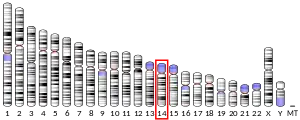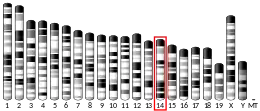| DCAF11 | |||||||||||||||||||||||||||||||||||||||||||||||||||
|---|---|---|---|---|---|---|---|---|---|---|---|---|---|---|---|---|---|---|---|---|---|---|---|---|---|---|---|---|---|---|---|---|---|---|---|---|---|---|---|---|---|---|---|---|---|---|---|---|---|---|---|
| Identifiers | |||||||||||||||||||||||||||||||||||||||||||||||||||
| Aliases | DCAF11, PRO2389, WDR23, GL014, DDB1 and CUL4 associated factor 11 | ||||||||||||||||||||||||||||||||||||||||||||||||||
| External IDs | OMIM: 613317 MGI: 90168 HomoloGene: 11886 GeneCards: DCAF11 | ||||||||||||||||||||||||||||||||||||||||||||||||||
| |||||||||||||||||||||||||||||||||||||||||||||||||||
| |||||||||||||||||||||||||||||||||||||||||||||||||||
| |||||||||||||||||||||||||||||||||||||||||||||||||||
| |||||||||||||||||||||||||||||||||||||||||||||||||||
| |||||||||||||||||||||||||||||||||||||||||||||||||||
| Wikidata | |||||||||||||||||||||||||||||||||||||||||||||||||||
| |||||||||||||||||||||||||||||||||||||||||||||||||||
DDB1- and CUL4-associated factor 11 also known as WD Repeat Domain 23 (WDR23) is a protein that in humans is encoded by the DCAF11 gene.
DCAF11 is a WD40 repeat protein, containing seven repeats of the closed circular solenoid protein domain WD40.[5] The WDR23 locus is highly conserved from C. elegans to humans.[6] DCAF11/WDR23 is the E3 ligase that specifically targets proteins for degradation via ubiquitination.[7][8][9] WDR-23 exists in two spatially distinct isoforms produced by alternative splicing, a cytoplasmic WDR-23A and nuclear WDR-23B. Nuclear and cytoplasmic versions of WDR-23 have distinct roles.[10]
Dcaf11 is required for the alternative lengthening of telomeres in mouse embryos[11][12] especially at the 2C and four-cell stages of cleavage. The direct binding of DCAF11 in the region of distal enhancer of Zscan4 gene facilitates KAP1 removal by ubiquitination-mediated degradation, leading to a lower level of the repressive H3K9me3 marks and thus activates 2C-specific gene Zscan4.[12]
References
- 1 2 3 ENSG00000284796 GRCh38: Ensembl release 89: ENSG00000100897, ENSG00000284796 - Ensembl, May 2017
- 1 2 3 GRCm38: Ensembl release 89: ENSMUSG00000022214 - Ensembl, May 2017
- ↑ "Human PubMed Reference:". National Center for Biotechnology Information, U.S. National Library of Medicine.
- ↑ "Mouse PubMed Reference:". National Center for Biotechnology Information, U.S. National Library of Medicine.
- ↑ Choe KP, Przybysz AJ, Strange K (May 2009). "The WD40 repeat protein WDR-23 functions with the CUL4/DDB1 ubiquitin ligase to regulate nuclear abundance and activity of SKN-1 in Caenorhabditis elegans". Molecular and Cellular Biology. 29 (10): 2704–2715. doi:10.1128/MCB.01811-08. PMC 2682033. PMID 19273594.
- ↑ Tang L, Choe KP (July 2015). "Characterization of skn-1/wdr-23 phenotypes in Caenorhabditis elegans; pleiotrophy, aging, glutathione, and interactions with other longevity pathways". Mechanisms of Ageing and Development. 149: 88–98. doi:10.1016/j.mad.2015.06.001. PMID 26056713. S2CID 24399248.
- ↑ Siswanto FM, Oguro A, Imaoka S (2021). "Sp1 is a substrate of Keap1 and regulates the activity of CRL4AWDR23 ubiquitin ligase toward Nrf2". The Journal of Biological Chemistry. 296: 100704. doi:10.1016/j.jbc.2021.100704. PMC 8141886. PMID 33895141.
- ↑ Chen Z, Wang K, Hou C, Jiang K, Chen B, Chen J, et al. (April 2017). "CRL4BDCAF11 E3 ligase targets p21 for degradation to control cell cycle progression in human osteosarcoma cells". Scientific Reports. 7 (1): 1175. Bibcode:2017NatSR...7.1175C. doi:10.1038/s41598-017-01344-9. PMC 5430835. PMID 28446751.
- ↑ Lo JY, Spatola BN, Curran SP (April 2017). "WDR23 regulates NRF2 independently of KEAP1". PLOS Genetics. 13 (4): e1006762. doi:10.1371/journal.pgen.1006762. PMC 5428976. PMID 28453520.
- ↑ Spatola BN, Lo JY, Wang B, Curran SP (August 2019). "Nuclear and cytoplasmic WDR-23 isoforms mediate differential effects on GEN-1 and SKN-1 substrates". Scientific Reports. 9 (1): 11783. Bibcode:2019NatSR...911783S. doi:10.1038/s41598-019-48286-y. PMC 6692315. PMID 31409866.
- ↑ Dan J, Zhou Z, Wang F, Wang H, Guo R, Keefe DL, Liu L (January 2022). "Zscan4 Contributes to Telomere Maintenance in Telomerase-Deficient Late Generation Mouse ESCs and Human ALT Cancer Cells". Cells. 11 (3): 456. doi:10.3390/cells11030456. PMC 8834411. PMID 35159266.
- 1 2 Le R, Huang Y, Zhang Y, Wang H, Lin J, Dong Y, et al. (April 2021). "Dcaf11 activates Zscan4-mediated alternative telomere lengthening in early embryos and embryonic stem cells". Cell Stem Cell. 28 (4): 732–747.e9. doi:10.1016/j.stem.2020.11.018. PMID 33357405. S2CID 229693249.
Further reading
- Siswanto FM, Oguro A, Arase S, Imaoka S (October 2020). "WDR23 regulates the expression of Nrf2-driven drug-metabolizing enzymes". Drug Metabolism and Pharmacokinetics. 35 (5): 441–455. doi:10.1016/j.dmpk.2020.06.007. PMID 32839090. S2CID 221307354.
- Zhang X, Luukkonen LM, Eissler CL, Crowley VM, Yamashita Y, Schafroth MA, et al. (April 2021). "DCAF11 Supports Targeted Protein Degradation by Electrophilic Proteolysis-Targeting Chimeras". Journal of the American Chemical Society. 143 (13): 5141–5149. doi:10.1021/jacs.1c00990. PMC 8309050. PMID 33783207.
- Le R, Huang Y, Zhang Y, Wang H, Lin J, Dong Y, et al. (April 2021). "Dcaf11 activates Zscan4-mediated alternative telomere lengthening in early embryos and embryonic stem cells". Cell Stem Cell. 28 (4): 732–747.e9. doi:10.1016/j.stem.2020.11.018. PMID 33357405. S2CID 229693249.
- Wang K, Liu Y, Yu Z, Gu B, Hu J, Huang L, et al. (November 2021). "Phosphorylation at Ser68 facilitates DCAF11-mediated ubiquitination and degradation of CENP-A during the cell cycle". Cell Reports. 37 (6): 109987. doi:10.1016/j.celrep.2021.109987. PMID 34758320. S2CID 243952009.
- Siswanto FM, Sakuma R, Oguro A, Imaoka S (August 2022). "Chlorogenic Acid Activates Nrf2/SKN-1 and Prolongs the Lifespan of Caenorhabditis elegans via the Akt-FOXO3/DAF16a-DDB1 Pathway and Activation of DAF16f". The Journals of Gerontology. Series A, Biological Sciences and Medical Sciences. 77 (8): 1503–1516. doi:10.1093/gerona/glac062. PMID 35279029.



